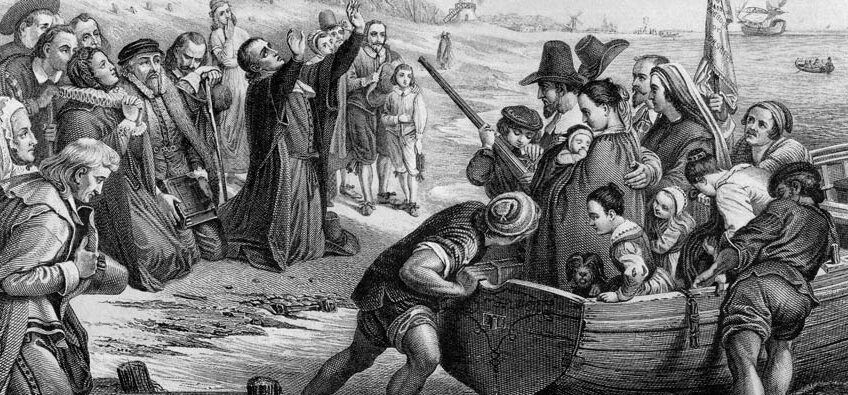
A Lesson from the Pilgrims

We hope that you can count good health and prosperity as among your greatest blessings in this inflationary year. Will are grateful for you and all of our friends and clients in 2022.
Among our Thanksgiving traditions, right along with turkey, family, and even football, is a story we like to tell each year, a story of our country’s founding with a moral that we hope is able to remain a part of the American national character, one remembered each Thanksgiving.
It comes from the history of the Pilgrims, who arrived on the Mayflower and settled at Plymouth in 1620 in pursuit of religious freedom.
Within five months of landing, half the company had died of sickness and starvation.
The sponsors of the enterprise had insisted that for the first seven years the colony would have “all things in common.” This communal organization, socialism by another name, exacerbated the settlement’s woes.
The pilgrim’s governor, William Bradford wrote that men complained about working for other men’s wives and children without being compensated while the wives thought it a form of slavery “to be commanded to do service for other men, as dressing their meat, washing their clothes, etc.; they deemed it a kind of slavery, neither could many husbands well brook it.”
Altogether the experience of communal property “was found to breed much confusion and discontent and retard much employment that would have been to their benefit and comfort.”
Eventually, it was decided, wrote Bradford, that each family would be assigned its own parcel of land so “that they should set corn every man for his own particular, and in that regard trust to themselves.”
The success of the new arrangement was predictable.
After one year Bradford reported,
“This had very good success, for it made all hands very industrious, so as much more corn was planted than otherwise would have been. . . . The women now went willingly into the field, and took their little ones with them to set corn; which before would allege weakness and inability; whom to have compelled would have been thought great tyranny and oppression.”
The Pilgrims had their religious freedom, but prosperity wasn’t part of their experience until they had economic freedom as well. In experimenting with collectivized economic organization, they discovered what everybody owns, nobody owns.
It’s a lesson that mankind has had to learn and relearn after many bitter experiences, from the “starving times” of the pilgrims to the millions of deaths from Stalin’s terror famine in Ukraine, to many millions more deaths from the collectivized farming under Mao Tse-tung in China.
The result of enforced collective ownership, socialized, or what is often called public ownership, is waste, neglect, and overuse.
What everybody owns, nobody owns. This year has seen the advance of collectivization in our national life, the sort of policies that decimated the Pilgrims. We are among many who see the spread of this philosophy at breakneck speed over the last two years. It is evident on many fronts but especially seen in the relentless assault on American property rights and in the expansion of the state and its spending. We hope the new year sees this trend reverse.
In the meantime, we are grateful for your business and friendship! Here’s to a free and prosperous America! Happy Thanksgiving to you and your loved ones!
